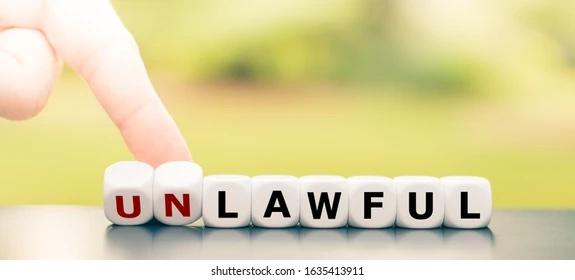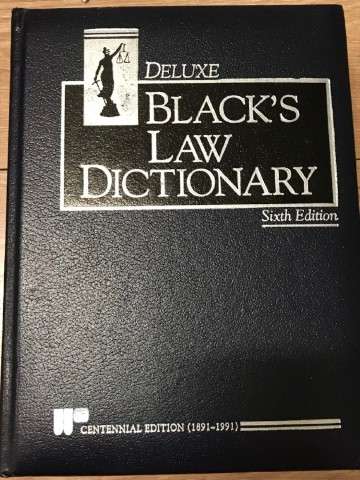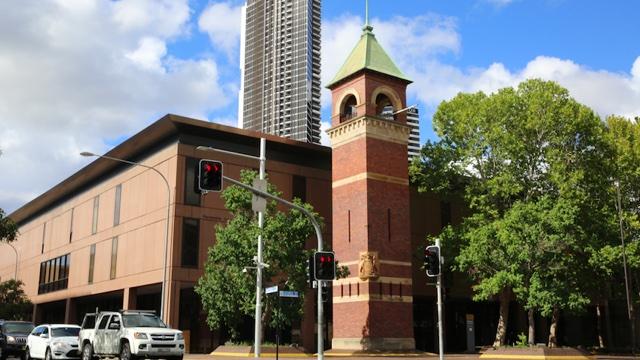
How many words are there in English to describe something that is disallowed by law???
You know how urban legend has it that Eskimos have something like 20+ words for snow❄️❄️❄️... Well, I reckon we have a similar situation when it comes to words in English that describe something as being disallowed by law.
So exactly how many word are there in English, seeing that the notion of "rule of law" is so central to the English-speaking common law sphere? Although I don't have the answer to that question, I thought I'd share with you the following synonyms and how I have worked out over the years they differ in meaning and usage:
1. illegal
2. unlawful
3. illicit
4. illegitimate
5. outlawed
6. banned
7. proscribed
------------------------------------------------
If you look up these words in a bilingual dictionary (e.g. English-Chinese dictionaries), there's a very good chance that the dictionary will simply tell you that they all mean "disallowed by law" (e.g. 违法的 in Chinese). If that's the case, the dictionary isn't of much help to you in working out how they differ in meaning and usage.
If you look them up in monolingual dictionaries though, i.e. English-English dictionaries, you'll likely get definitions that are more nuanced, thereby offering you more insights into how they are to be differentiated.
illegal - forbidden by law
unlawful - not permitted by law
These two terms are probably closest among the 7 to being exact synonyms to each other, in most cases they are interchangeable. However, there are still nuanced semantic differences.
illegal is when something is expressly forbidden by law, whereas unlawful is when something is not authorised or permitted by law.
And that's why both murder and manslaughter are described in criminal law textbooks as being "unlawful killings". Interestingly, the expression unlawful killing necessarily implies that there would be circumstances in which killings would be lawful (!) Yes, that's right. They include things like a death-penalty states executing a prisoner on death row, or where killing occurs during war time where all international laws on rules of engagement, etc. are properly adhered to.
My Black's Law Dictionary (6th edition) also offers unlawful in terms of "without excuse or justification".

Expressions with other collocates such as "unlawful discrimination" also help us to see this shade of meaning; it means that certain forms of discrimination are actually okay (and lawful!). For example, a job advertisement of a women's lingerie store for a sales assistant can openly state that only female applicants should apply, as the circumstances are such that discrimination against men in this case is considered justified.
In contract law, contracts over illegal acts are invalid (e.g. contracting a hit man to kill a rival... if the hit man takes your money and changes his mind, you cannot sue him for breach of contract, because the contract is invalid to begin with). If however the contract is over something such as ghostwriting in academia (research A writes a paper for researcher B for a fee), which isn't necessarily illegal (actively forbidden by law where breaches would attract legal sanctions) but it may be considered contrary to public policy and therefore not a lawful consideration (not permitted by law) to sustain the contract's validity. (This nuanced difference is given by English-Chinese Dictionary of Anglo-American Law 《元照英美法词典》)
illicit - forbidden by law, morals or accepted norms.
Illicit is seldom used nowadays, at least I don't see it used much at all. My intuition of illicit is that rather than "disallowed by law", this term has evolved to carry more of a moral condemnation than strictly about something that is in breach of the law.
The two collocates that I've ever seen with illicit are illicit drugs and illicit sex.
The English word drug is ambiguous between medicinal (desirable) and addictive (undesirable). The adjective illicit helps to qualify and narrow the meaning of it to refer to the undesirable type (which in many jurisdictions also happen to be disallowed by law). Likewise, illicit sex carries with more or a moral condemnation than any reference to the act being somehow criminal.
illegitimate - not in accordance with what is accepted, not justified.
Although illegitimate in the context of "an illegitimate child" had legal implications in the olden days, the term illegitimate or illegitimacy these days don't usually carry the sense of "not legally authorised" anymore. In the olden days, a child born out of wedlock (thus illegitimate) could potentially have legal ramifications in terms of succession law and the person's capacity and right to inheritance. However those laws (at least in Australia) have been done away with for quite a long time now.
These days, when people talk about something being legitimate (or colloquially, whether something is 'legit'), they mean whether something is genuine and justified. For example, being COVID-postive is a legitimate reason for not going to work, whereas wanting to sleep in on Monday morning isn't.
outlawed - being made illegal, banned by law.
The word outlawed focuses on the fact that a item or an practice is/was specifically made illegal, rather than the current status of the item or the practice being illegal. Thus the word "outlawed" is often mentioned in the same breath as the legal authority that caused it to become illegal (e.g. Tear gas has been outlawed as a method of warfare on the battlefield by almost every country in the world.)
banned - being disallowed by law or other rules.
The word banned is often used in the sense of outlawed, but it can also be used in the connection with disallowed by something other than law, such as being banned by a sports governing body e.g. Australian swimmer Shayna Jack has been banned for two years for a doping violation.
proscribed - banned, forbidden, disallowed
The word proscribed has come come up in media reports of late in the context of proscribed groups or designated terrorist organisations which the law forbids. I get the sense that "proscribed" is like "banned", except that "proscribed" is of a much higher register, it is much more formal than "banned".
© 2022 Kenny Wang, PhD
Certified Specialist Legal Interpreter (English <> Mandarin)
Lecturer in Interpreting and Translation at Western Sydney University
Click here to read this post in Chinese: illegal vs. unlawful vs. banned...“违法”的近义词分析❄️

No comments:
Post a Comment